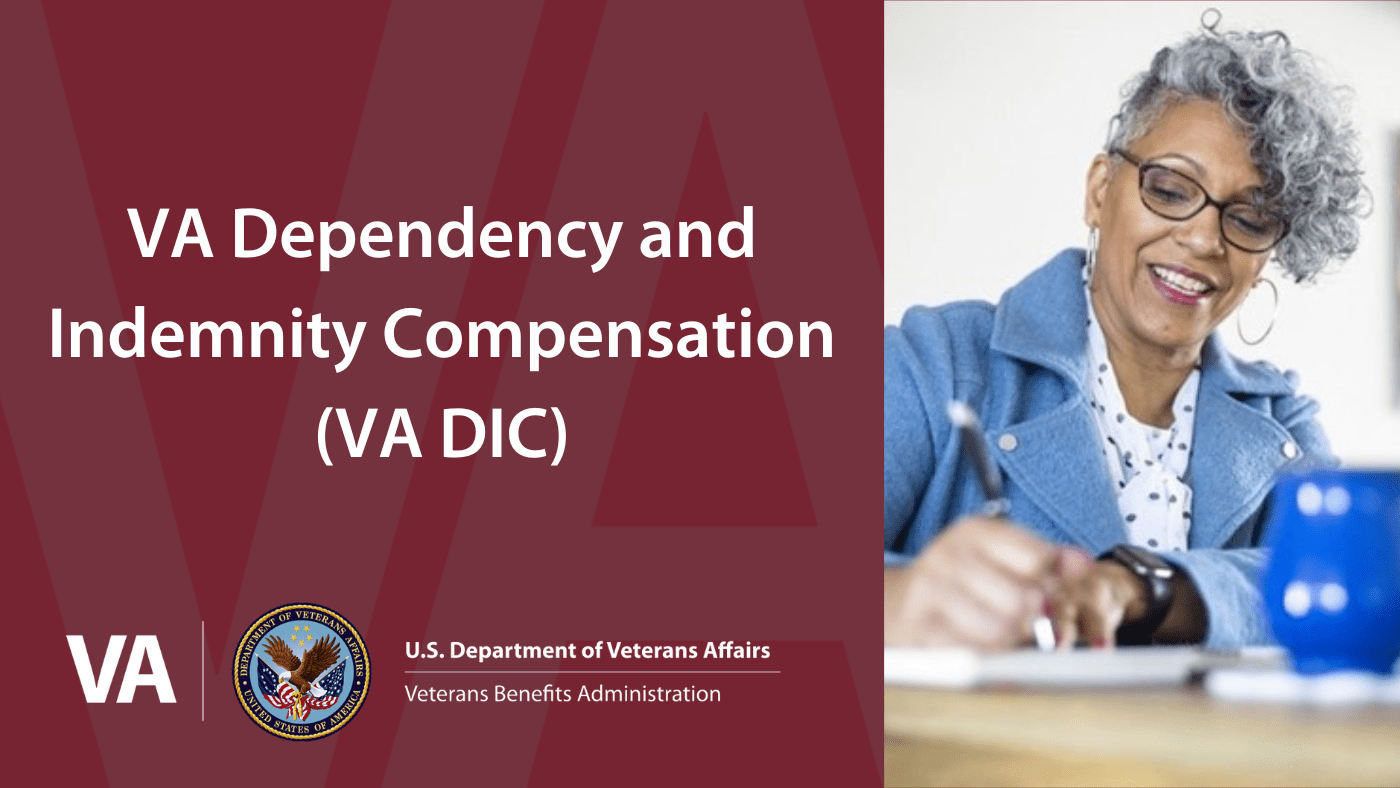If you’re the surviving spouse or child survivor of a Veteran who died from a toxic exposure-related condition, you may qualify for VA benefits—including monthly benefits through the VA Dependency and Indemnity Compensation Program.
Thanks to historic new legislation called the PACT Act, VA has expanded the list of health conditions that VA assumes are service-related. This means that the survivors of Veterans who died from these conditions can now qualify for benefits. These newly-covered conditions include all reproductive cancers, all respiratory cancers, all head cancers, and many other illnesses.
Here’s what this new law could mean for survivors like you
- If your loved one passed away from a PACT Act-related condition, we encourage you to apply for DIC benefits now.
- If VA previously denied your claim for DIC benefits for a PACT Act-related condition, you can now apply to collect benefits as far back as the date of your original application. VA will try to contact you and may be able to reevaluate your claim, but you don’t need to wait for VA to contact you before you can re-apply.
- If VA owed your loved one money or benefits that they never received, you may also be eligible for a one-time accrued benefits payment.
VA encourages all survivors who believe they may be eligible for VA DIC to apply now, or visit VA.gov/PACT to learn more about what this new legislation could mean for you. You can also review eligibility to determine whether you qualify as a surviving spouse or dependent of a Veteran.
When you’re ready to file a claim for VA DIC, you can do so online, by mail, or with help from an accredited representative, such as a Veterans Service Officer (VSO). The application you’ll need depends on your relationship to the deceased Veteran. If you’re the surviving spouse or child of a Veteran, you’ll use VA Form 21P-534EZ. The evidence table and checklist found in the instructions of the 534EZ can help you submit a more complete application package and may allow for a quicker decision. If you’re a surviving parent, you’ll fill out VA Form 21P-535.
Learn more about VA DIC and accrued benefits by visiting www.va.gov/disability/dependency-indemnity-compensation/.
Topics in this story
More Stories
In this news post, we explore the various options designed to keep you in your home, offering hope and possible solutions for when/if you experience financial hardship.
Vietnam Veteran David Chee is among the many Native American Veterans and service members who have dedicated their lives to military service. Chee proudly served with the Army's 82nd Airborne, parachuting into the jungles of Vietnam. Chee now owns a home he purchased on Navajo tribal lands with the help of the VA Native American Direct Loan.
For Veterans, donating to charities—especially those that support fellow service members—feels like a meaningful way to give back to the community. However, Veterans and their loved ones must remain vigilant and learn to protect themselves from charity scams.







Hello, Does this legislation apply to children of a deceased Vetran who served in Vietnam 1970-1971, where “Agent Orange”was in effect? My Medic father had some PTSD and was diagnosed with prostate cancer then passed away in 7/10/2005. Are we, his children eligible for compensation? Please advise. Thank you.
I was told I don’t receive va benefits because we were married after my husband served in the Korean War.
We have been married for 66 years and I have been his care giver for all these years
Louise-It is not a yes or no answer. He served in war time, so he will be eligible for some benefits-Healthcare is one. As for any benefits you may be eligible for-Please make an appointment with one of your state’s VA offices. Then you and your husband, together, sit down and talk with them.
I was denied all Vetrans benefits due to income
[Editor: VA’s non-health benefits (from VBA), with the exception of pension, are not affected by income.]